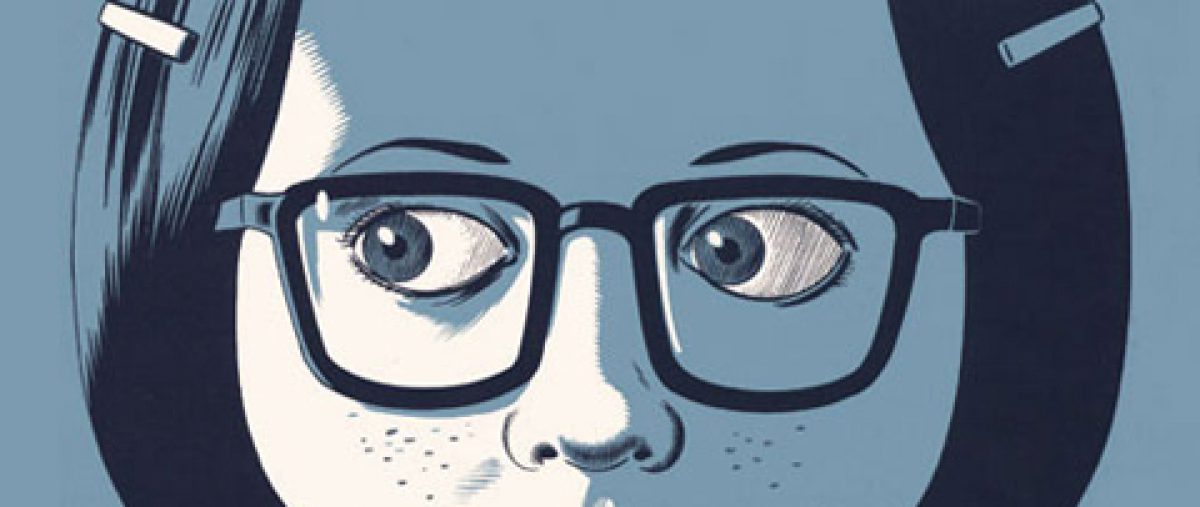First review for my new site below! And as promised, I’m also beginning to upload my archives from the Elkhart Truth. I was planning on starting with my most recent, from February 2016, but today’s news about Charlottesville prompted me to start in the middle of 2015 with John Lewis’s March: Book Two. Check out the archives links to the right if you’re interested.
A Girl and Her Dog: Fetch, How a Bad Dog Brought Me Home, a Graphic Pet Memoir by Nicole Georges
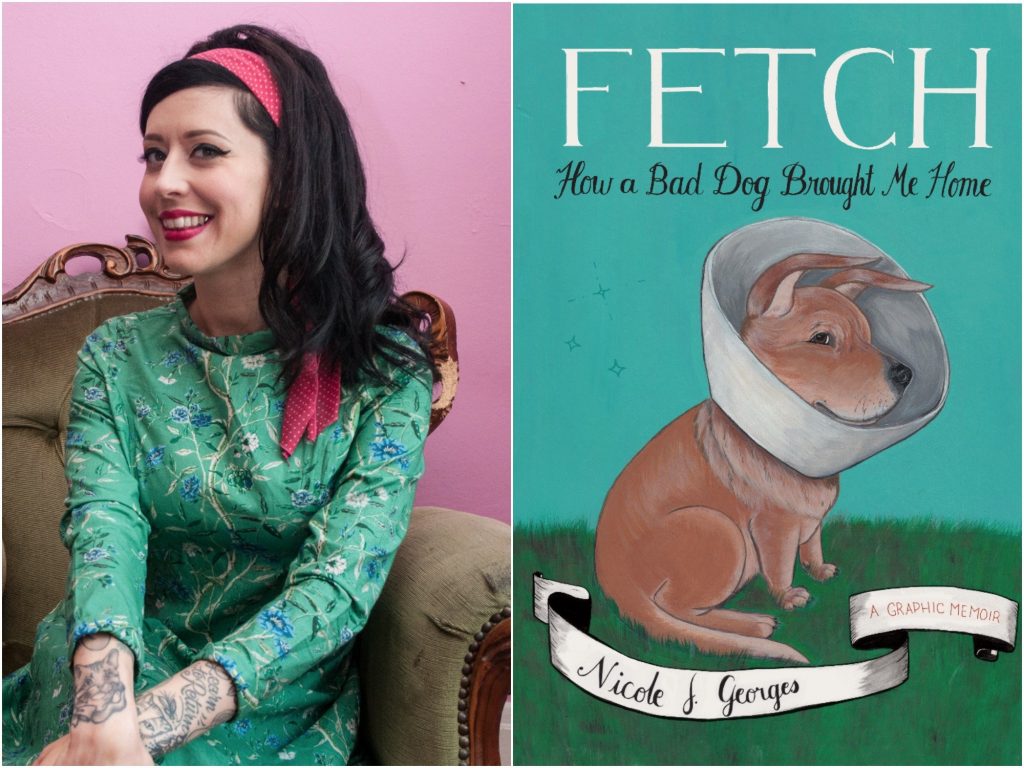
Pet memoirs tend toward the feel-good: a narrator develops a pat, inspiring storyline about how a pet saved their life, proved a companion through a difficult time, or brought them out of their shell—preferably to meet another fellow pet lover in a heartwarming, possibly madcap adventure.
However, if you’ve read Nicole Georges’s first full-length graphic memoir Calling Dr. Laura (see my mid-January 2014 review in the Archives), you’ll know that although Fetch will make you laugh and cry and very likely feel good at times, it won’t be by means of the usual pet memoir clichés. Sunny and sappy simply do not figure into Georges’s emotional playbook.
Don’t get me wrong: Georges and her dog, Beija, loved each other with a rare devotion, and understood each other as if they were soulmates. But Georges first adopted Beija when she was 16—a not terribly stable version of 16—and she didn’t adopt the dog for herself, or for her family, but instead as a way to “heal” her new boyfriend’s childhood. A story like this would probably raise red flags for any pet adoption agency less desperate than “Wayside Waifs,” which smells like urine even from the sidewalk, and has “expiration” dates for euthanasia rather than birthdates posted on the pets’ cages.
After her boyfriend’s family predictably rejects Beija, Georges and her family struggle to keep this difficult dog in their already difficult family. Georges and her boyfriend move to Portland and promptly break up, and Georges and Beija are left to focus on their relationship. But rather than embarking on grand adventures together, what bonds Georges and Beija is their shared love of strict boundaries and lists of rules—all of which, as you might guess, make relationships with humans a challenge:
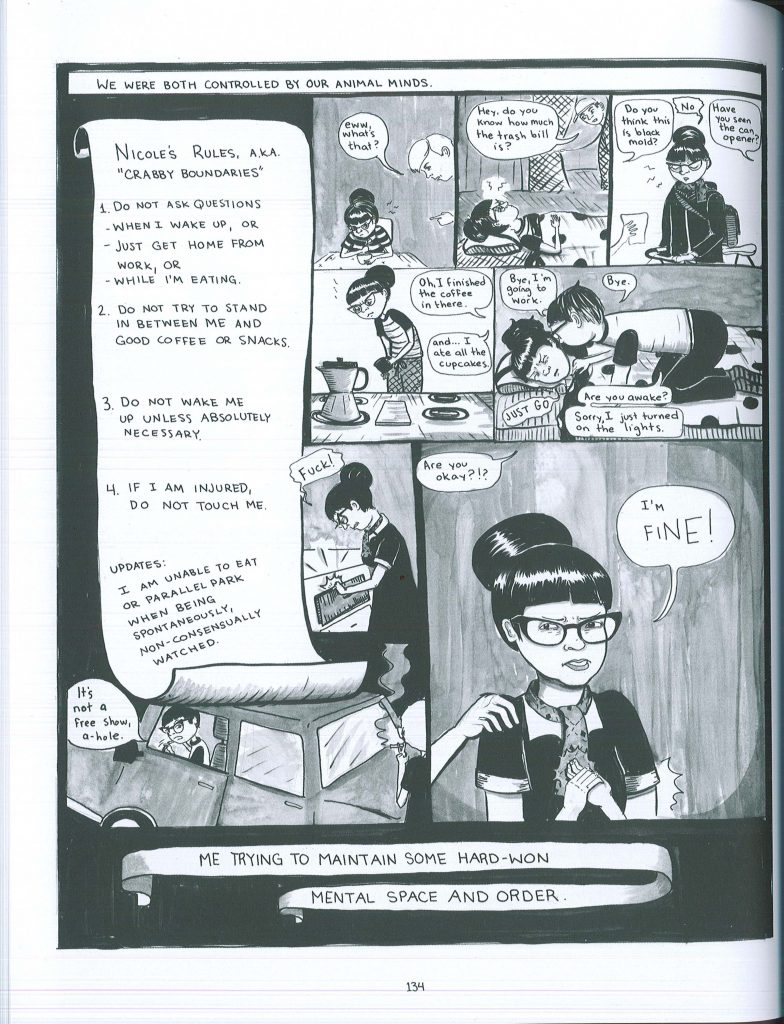
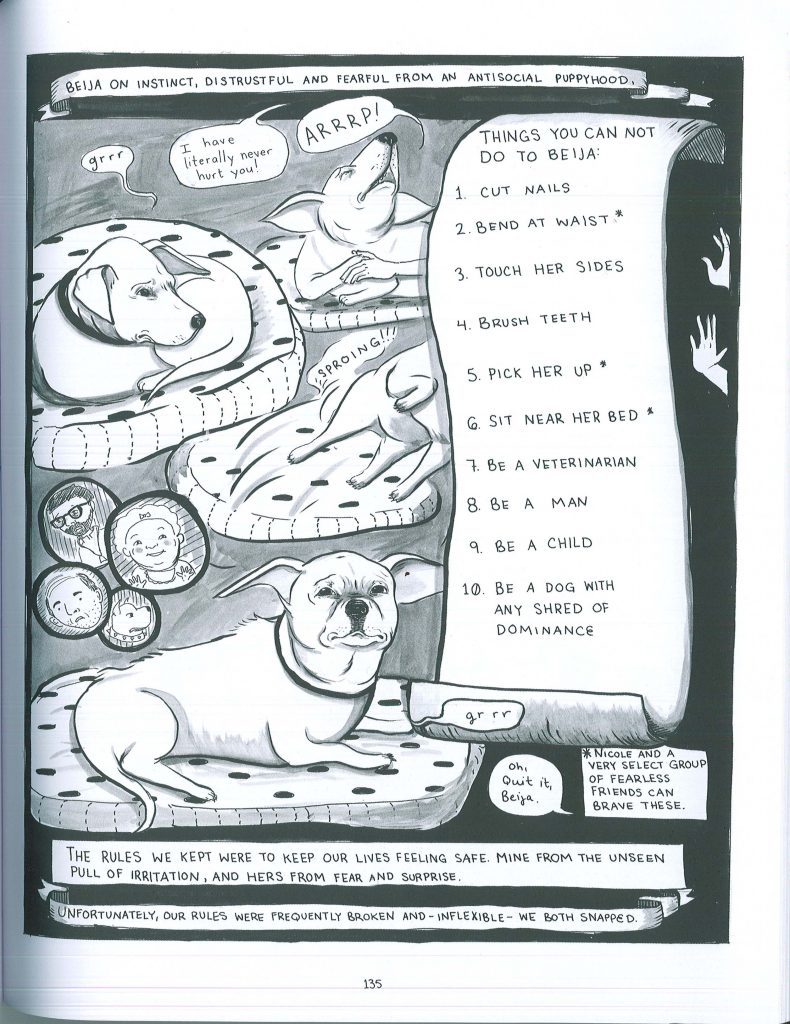
As you might guess from the above lists, what makes this often circuitous story so engaging is that Georges isn’t afraid to share her flaws, to expose her most neurotic impulses, to make herself vulnerable to her readers: very difficult to accomplish, but always the recipe for the most memorable and engaging memoirs, whether image-based, word-based, or both.
In other words, as other reviewers have already noted even though this book just came out in July, Fetch as a whole says more about Georges than Beija. Georges connects the dog commands like “Sit,” “Stay,” and “Easy, Girl” in the chapter titles to stories about herself as well as Beija, and her section titles range from “Some Creatures I Accidentally Killed” and “Adventures in Bad Teen Parenting,” to and “I Was a Feral Child”:
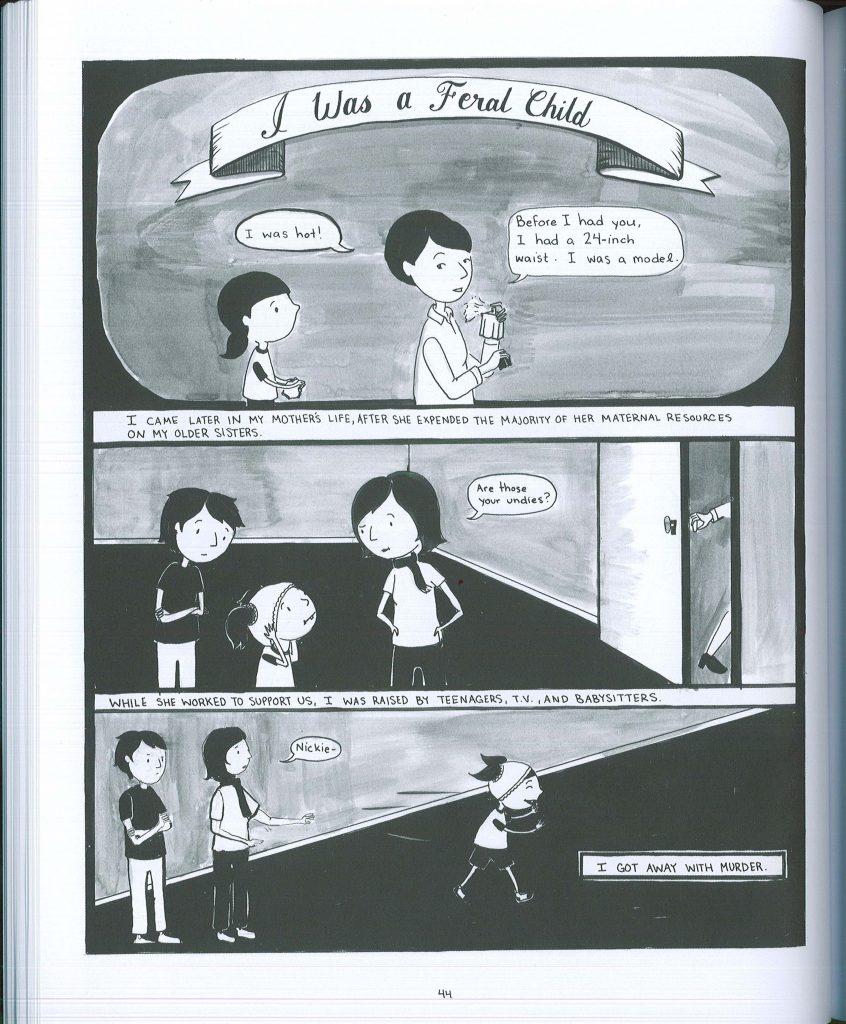
You’ll notice here that the illustrations are somewhat primitive, but don’t mistake Georges’s purposeful artistic choices for lack of skill. Her childhood stories are visually childlike, her adult stories not only more mature, but downright brilliant when it comes to dogs, as in this uncharacteristically welcoming dream version of Beija:
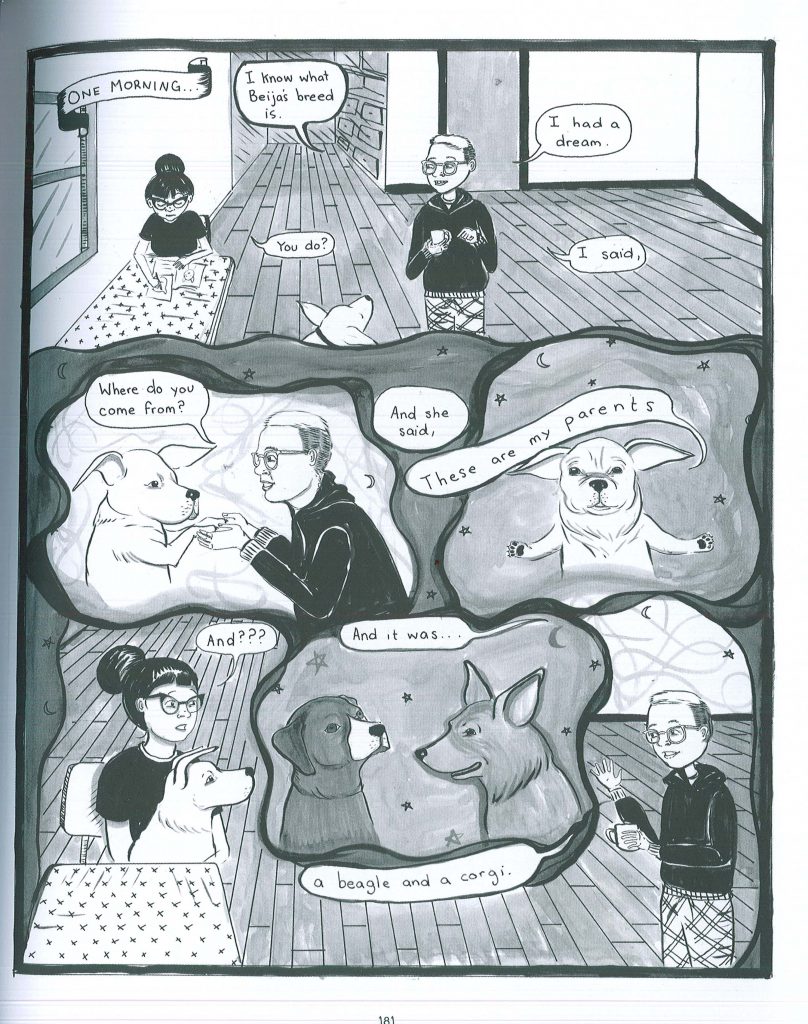
Some reviewers have critiqued the book as rambling and vague, but I wonder if they’re reading a bit too fast. Not only does Georges make subtle but powerful transitions between sections that seem at first disconnected, but her phrasing is stunning when she wants us to notice. Some of my favorite turns of phrase in the book are when she refers to Beija’s difficult personality as her “murky disposition” and her odd, mutt proportions as resulting in an “abundance of face.”
As with these simple yet expertly compact phrases, Georges’s visuals can condense what would be pages of text into a frame or less. For example, haven’t we all felt like this at some particularly low point in our lives?
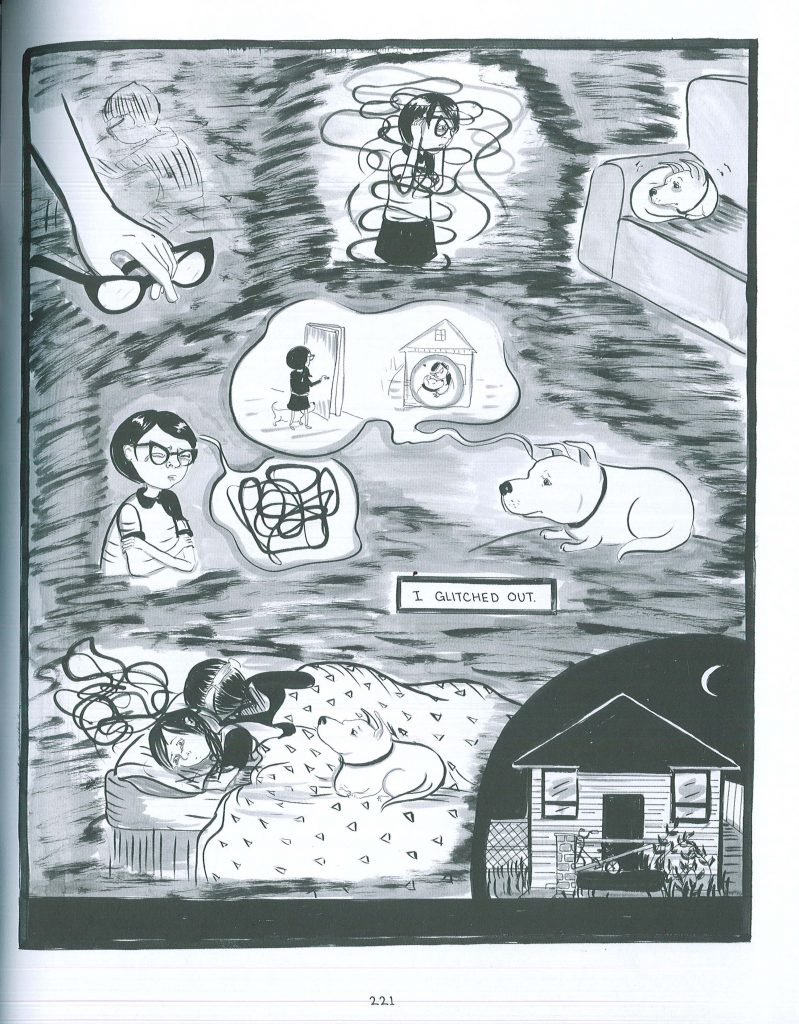
“Georges is one of those cartoonists whose work is instantly recognizable. It’s singular,” gushes a reviewer from the oft-snobbish Comics Journal, and pedigreed blurbs on the back cover range from acclaimed comics artist Alison Bechdel (Fun Home and Are You My Mother? to media celebrities Jill Soloway and Rachel Maddow.
As you revel in Georges’s lush illustrations of Beija and other animals, look also for her expert techniques in shifting framing and perspective to create both interest and momentum: below, two-person scene to three-person scene to shot from below, to shot from above.
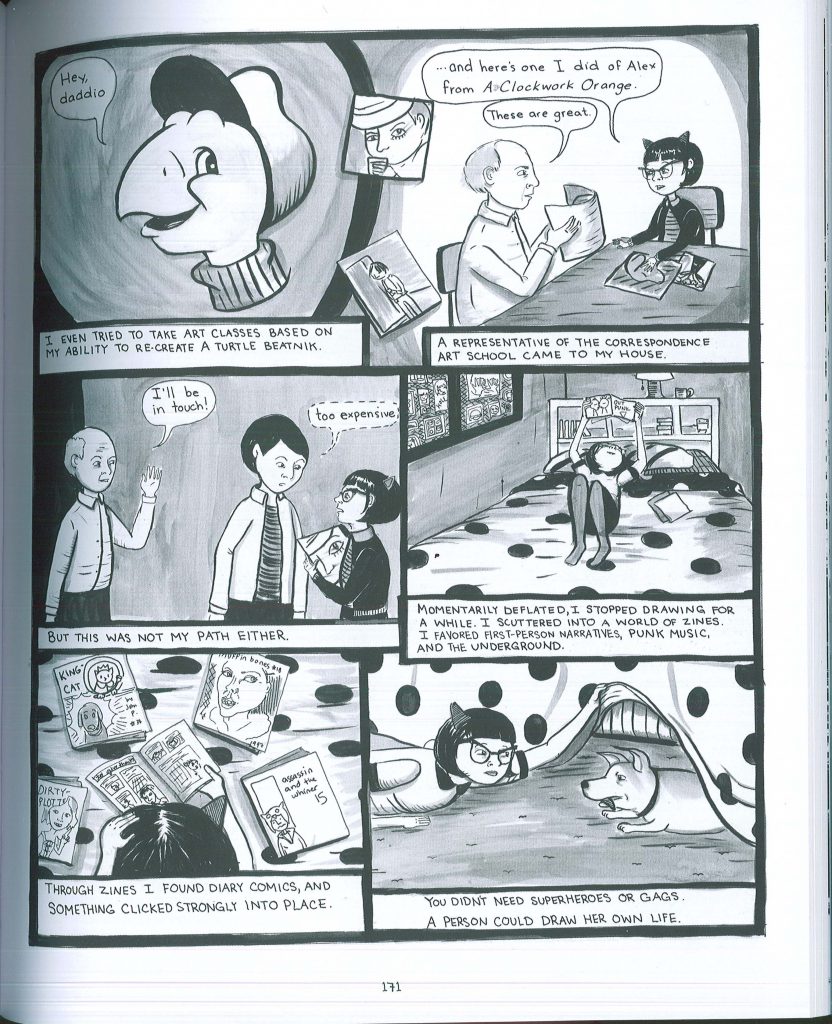
As you can see from Georges’s Patreon page, she likes keeping a number of projects running at the same time. She’s currently touring the coasts for Fetch, while also running her podcast Sagittarian Matters and developing an interview-based “illustrated non-fiction guide for youth” about gender with cultural theory luminary Judith Butler—and that’s just her highest-profile projects.
One more note: heads up that if you’ve ever had and loved a pet, the end might make you cry. I sure did, even though sunny and sappy don’t tend to figure into my emotional playbook either.
Stay tuned for my next review of a very different type of memoir, Hostage by Guy Deslisle, which is not quite as new as Fetch, but was just released in April. In the meantime, know that you can order any of these books (free shipping!) from Better World Books 
in downtown Goshen, and keep up the feedback and suggestions. I’m excited to be back in the swing, and I’m all ears (and eyes)!
